A Day in the Life at an EATS Camp
EATS has already hosted two camps this summer! We can’t believe how fast the long, warm days are rushing by. We have one camp left for the summer and we can’t wait to spend more time cooking fresh, local food with the students of Park City. If you’ve never had the chance to hear what our camps are all about, keep reading as we recount one of our favorite days of camp this year.
At Homegrown EATS camp at the Swaner EcoCenter, students set out to learn about local food systems. They posed the question: “What is climate change and does where we get our food contribute to it?” On their way to answering this question, students learned how to make salsa from scratch. Tomatoes, white onion, corn on the cob, cilantro were sourced locally through EATS’ partnership with Copper Moose or at the Park City Farmer’s Market. The rest of the ingredients; limes, jalapeno, and corn chips were purchased at a grocery store.
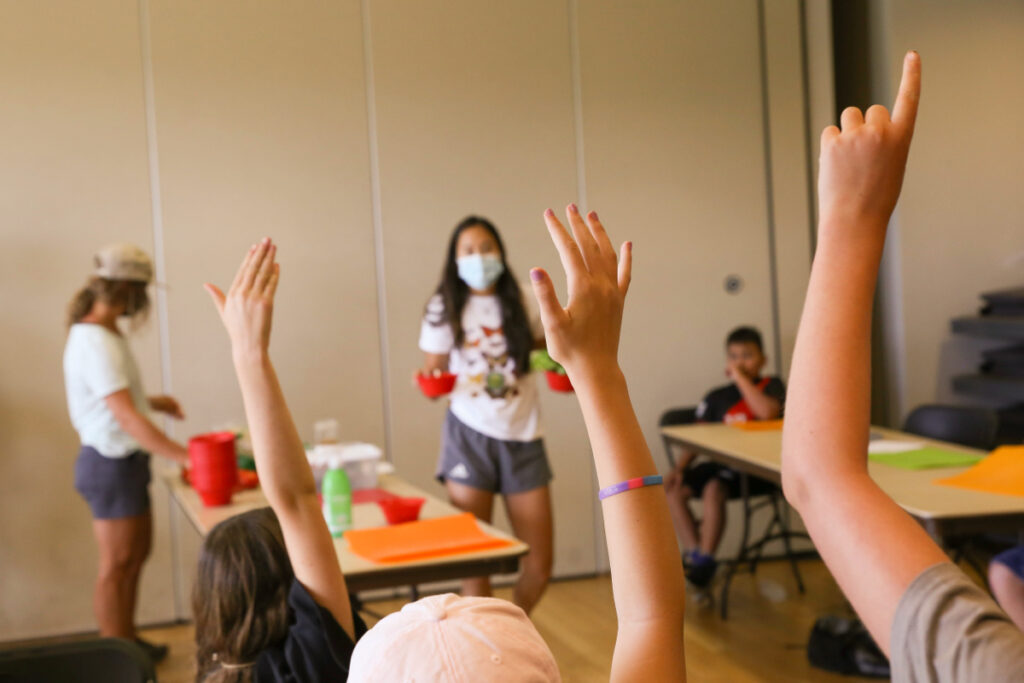
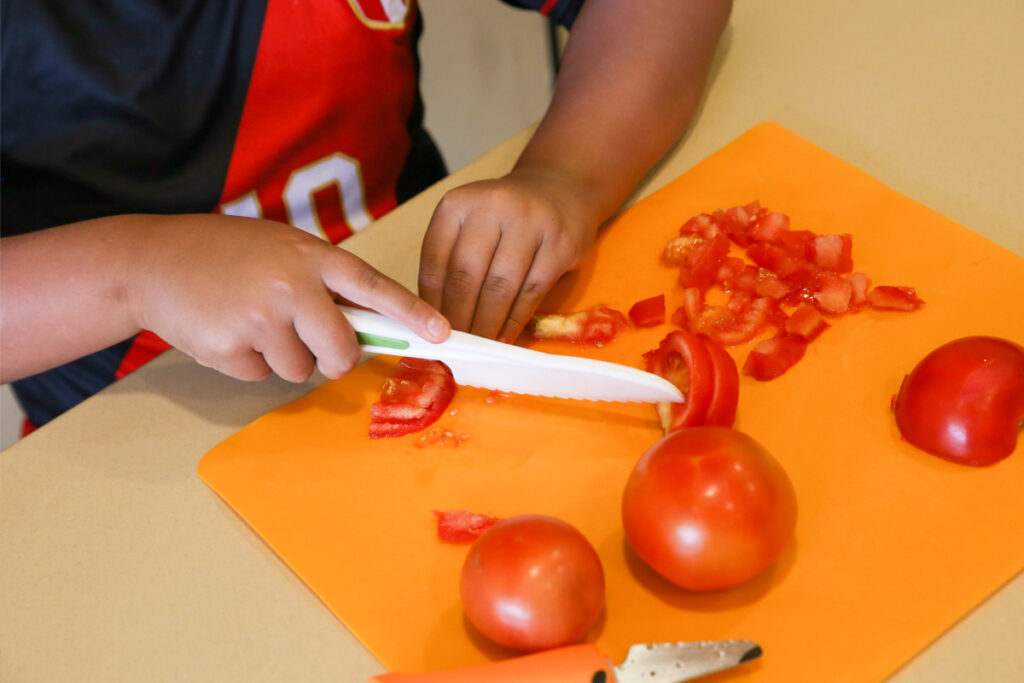
To explore the difference between the sourcing methods of these foods and the impact these methods have on our climate, the campers played a game where they lived the life of a tomato. In this game, students do jumping jacks to represent how far a tomato might need to travel to get from the farmers market in Park City to their camp at Swaner vs how many jumping jacks would be needed if the tomato comes from another country, weaving from plane to train to semi-truck.
After playing this game, the students set out to make salsa together, while reflecting on how tiring it is to do so many jumping jacks! Students chopped onions, tomatoes, cilantro, jalapeno, and cut the corn from the cob. They then squeezed lime juice over the mix.
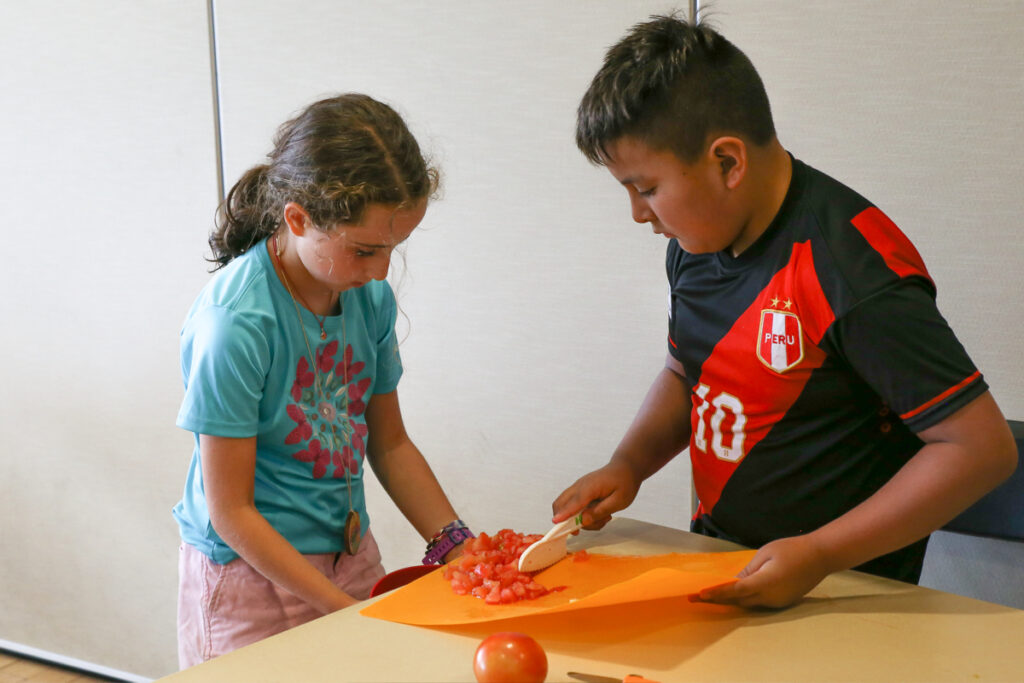
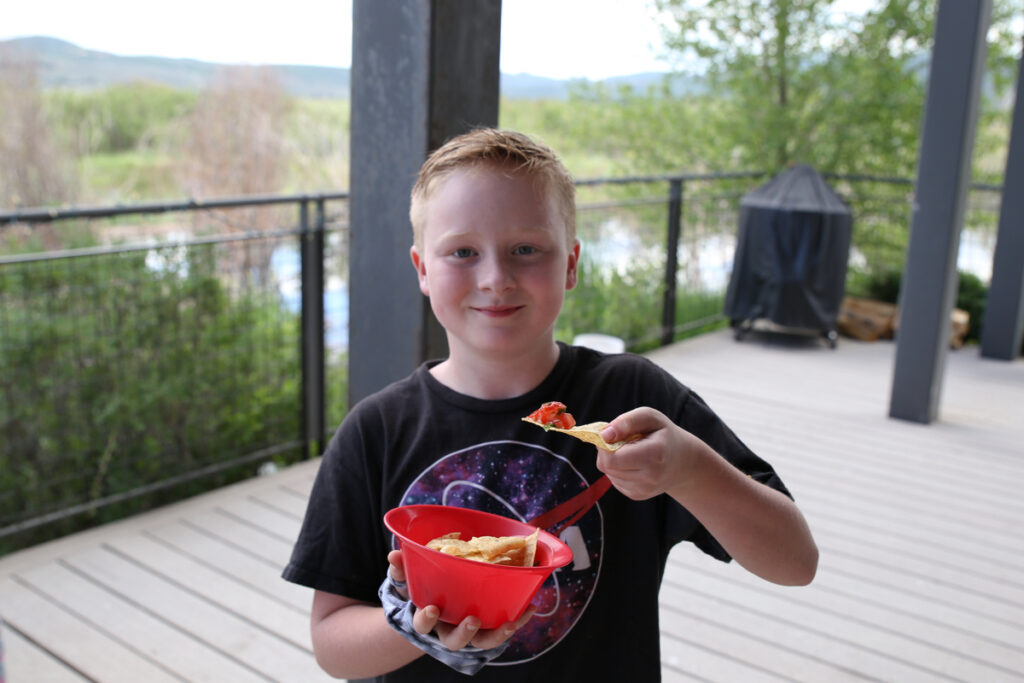
While eating chips and salsa, students reflected on what they learned through exploring the differences between local food and food that comes from far away and what impact the decision between the two might have on our community. They asked:
- Which scenario (local vs not local) was more sustainable? Which was more just?
- What does this say about eating from a local food source/local food system?
- What about a global food system?
- What does this say about eating seasonally?
This sparked a larger conversation about climate change and what we, as consumers can do to ease the stress on an overwhelmed food system. Students decided we can buy local and do fewer “jumping jacks” and therefore use less energy-burning fossil fuels.
We love watching students’ faces light up as they gain access to fresh foods and the agency to make a delicious snack for themselves. We love it even more when cooking together leads to discussions about larger topics! We hope to see you at an EATS camp soon so we can share these moments together.
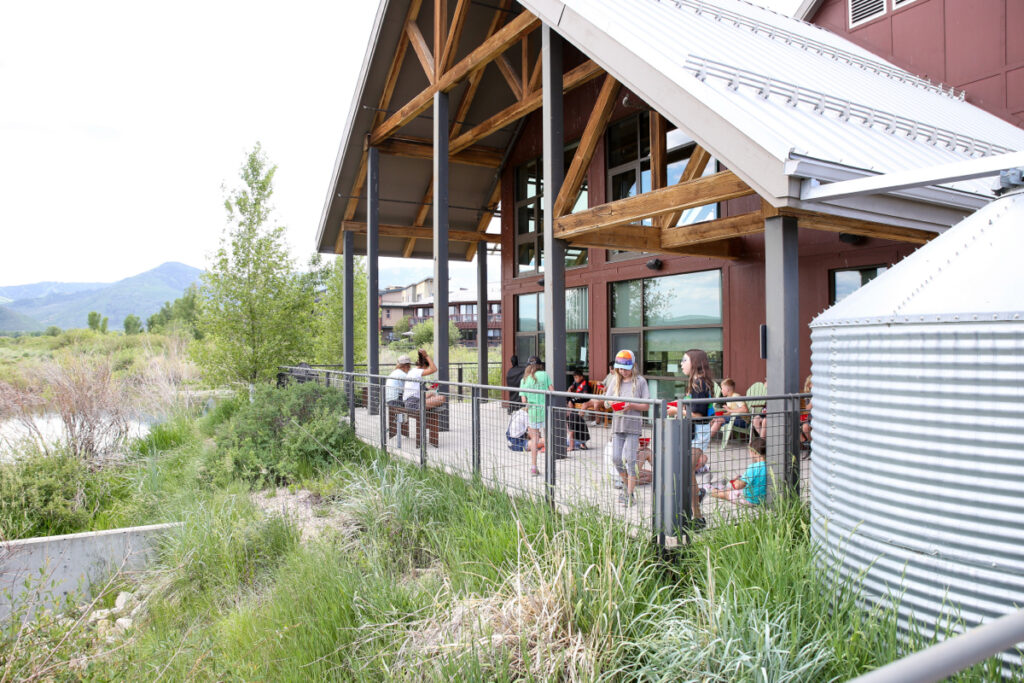
Leave a Reply